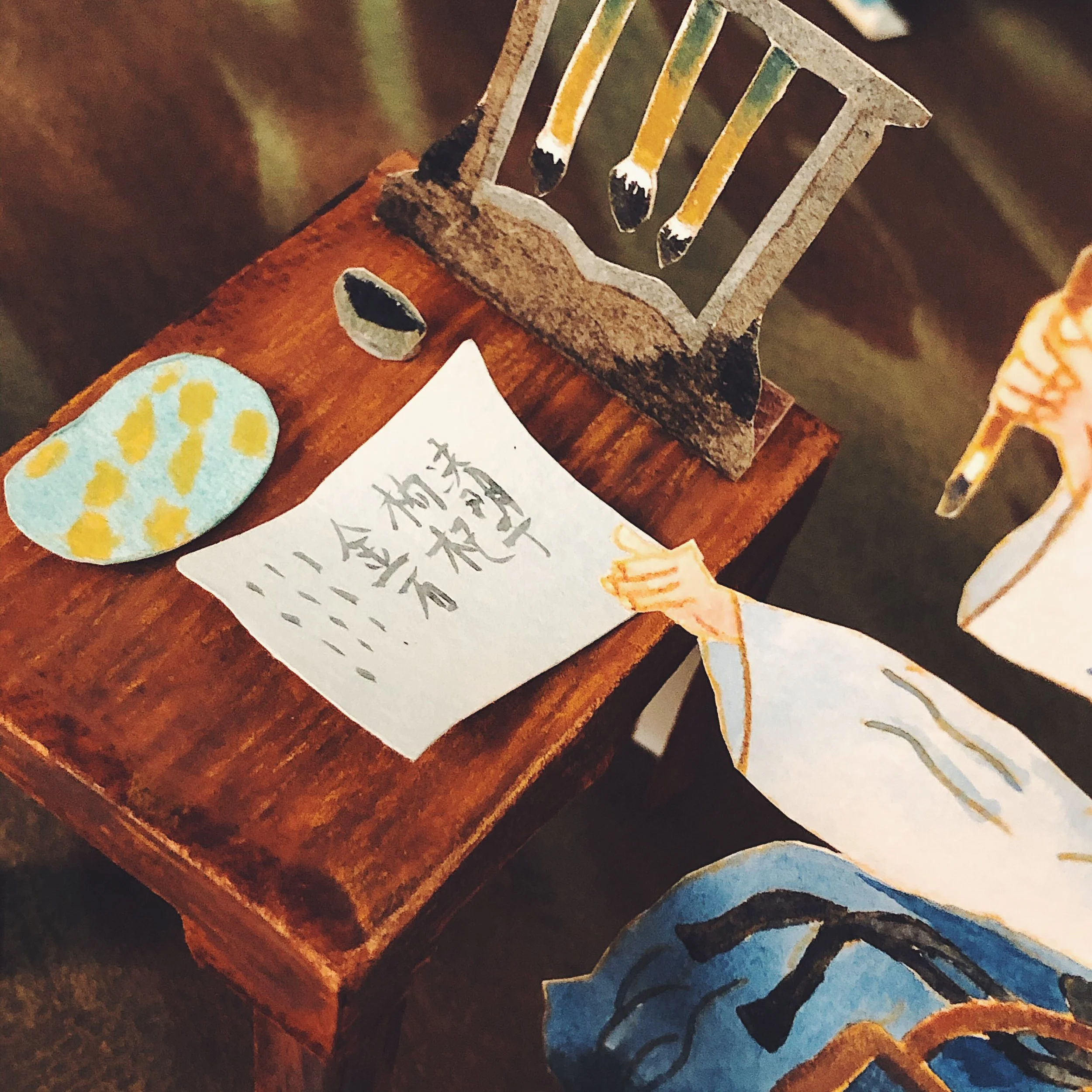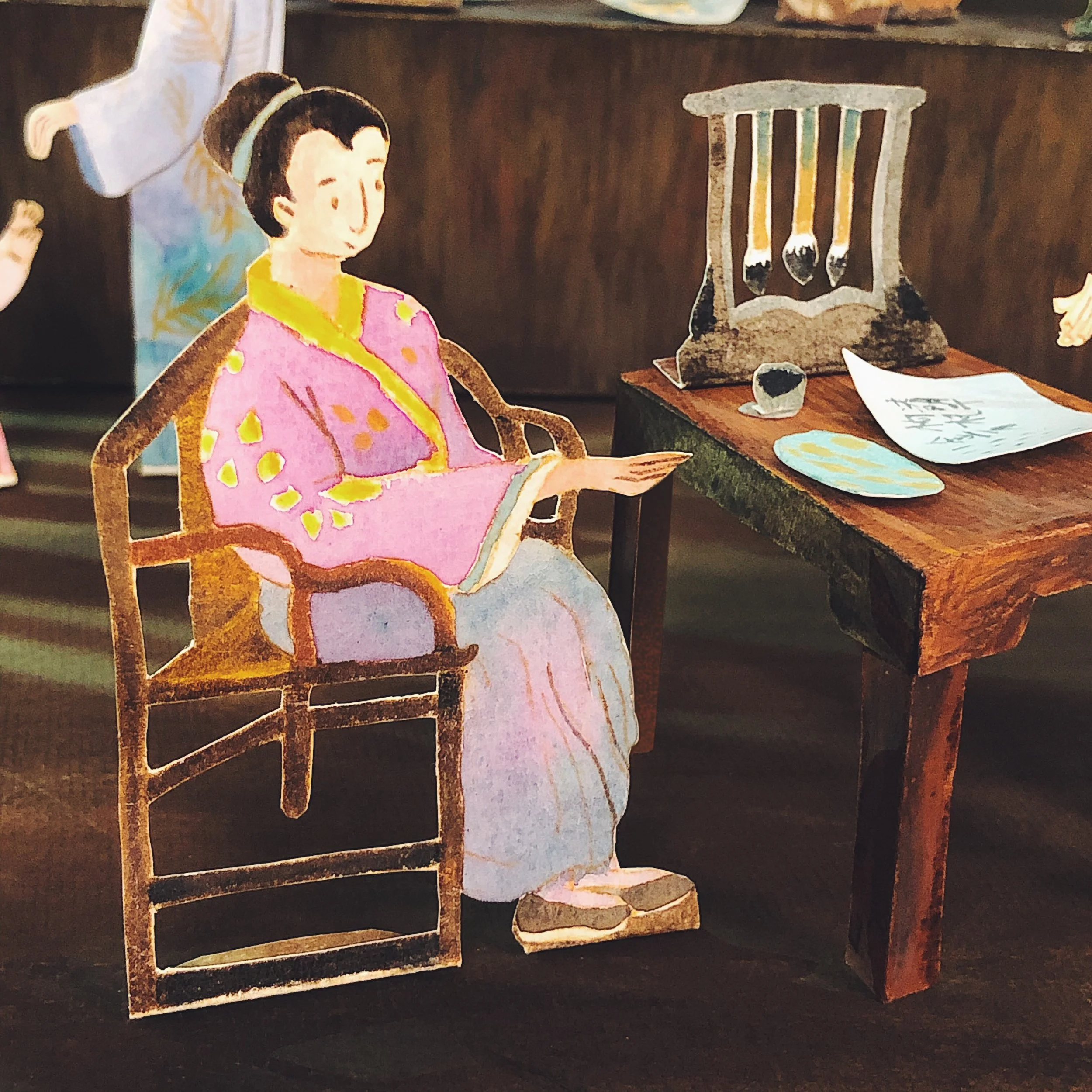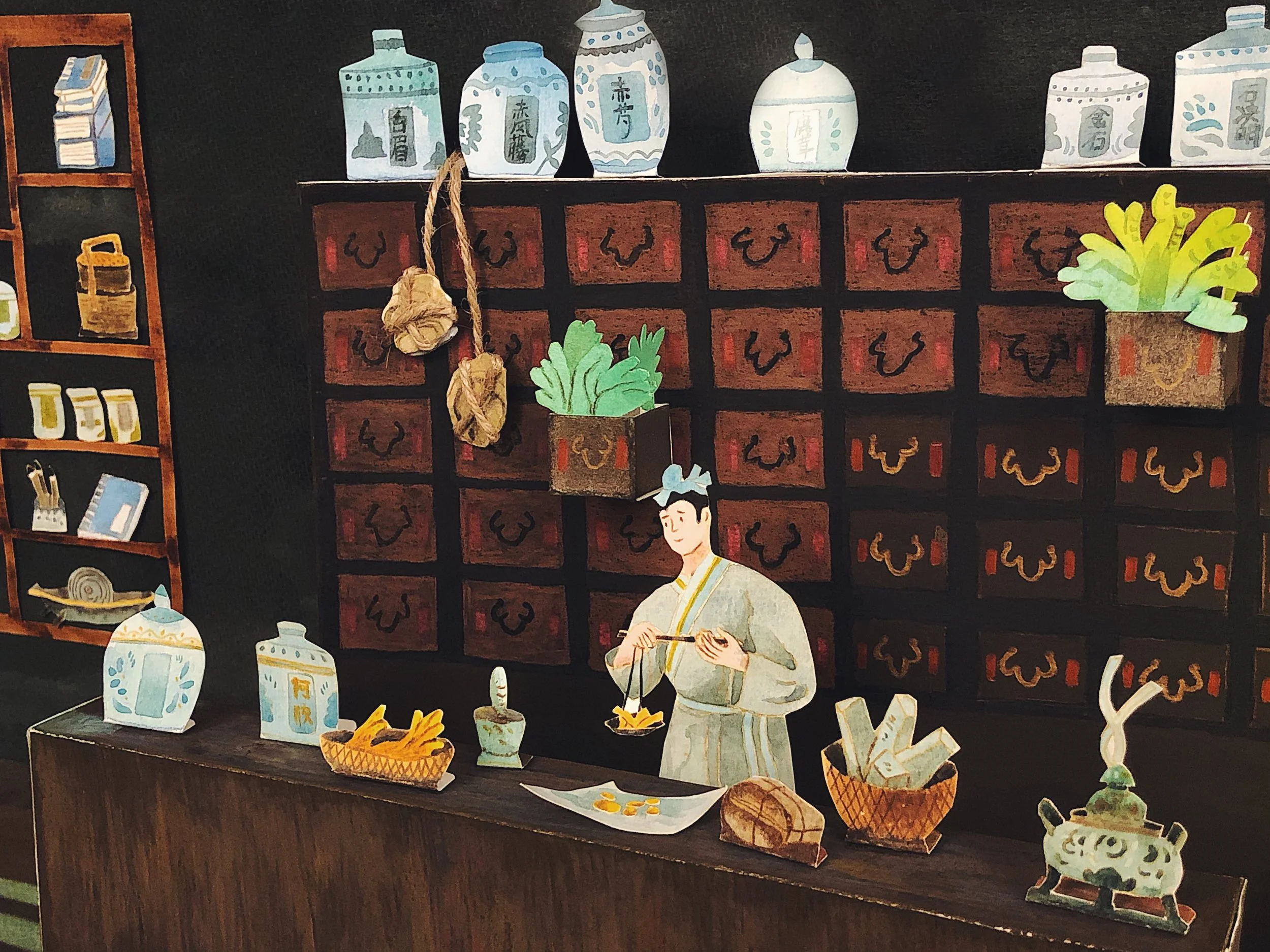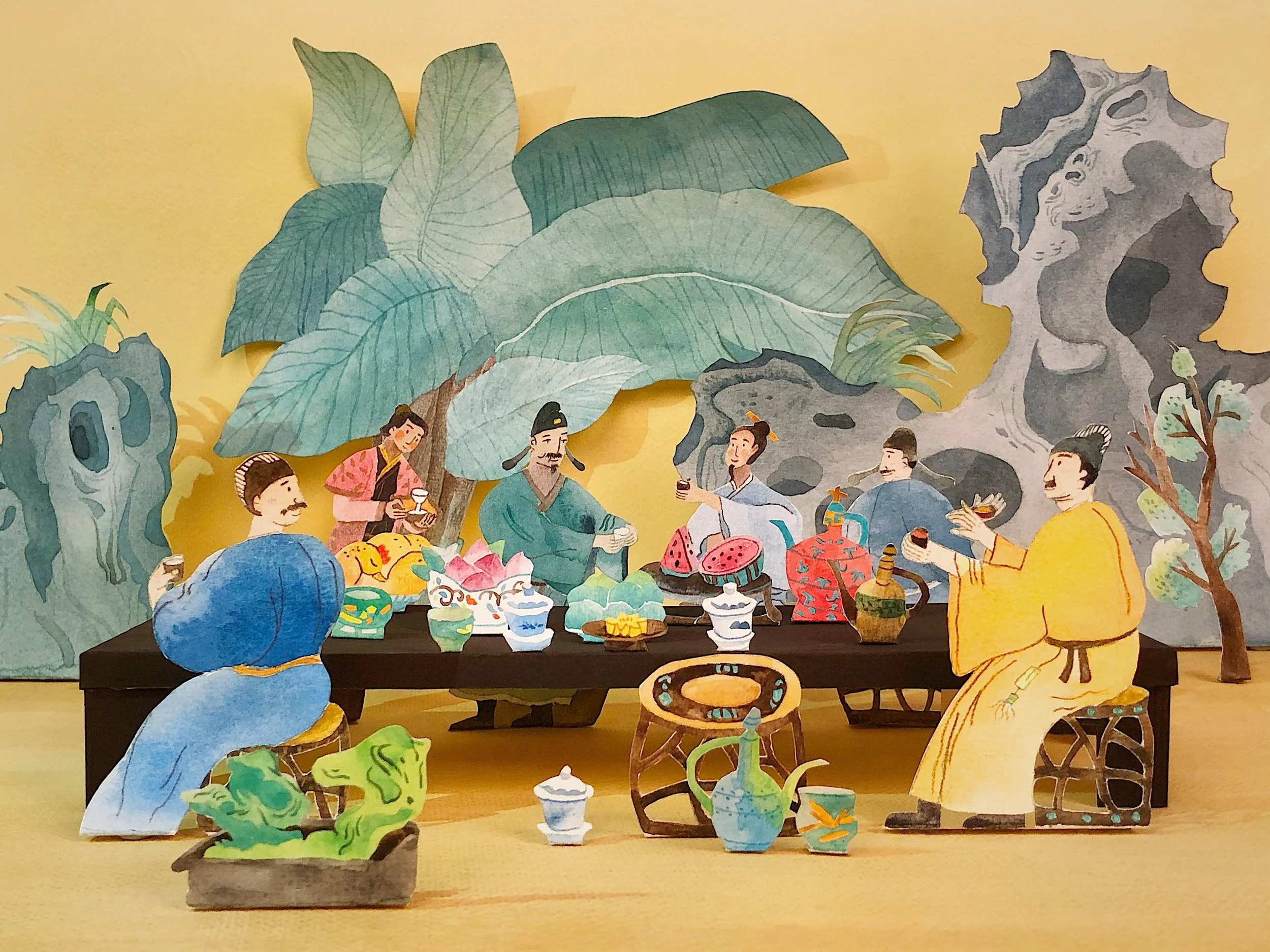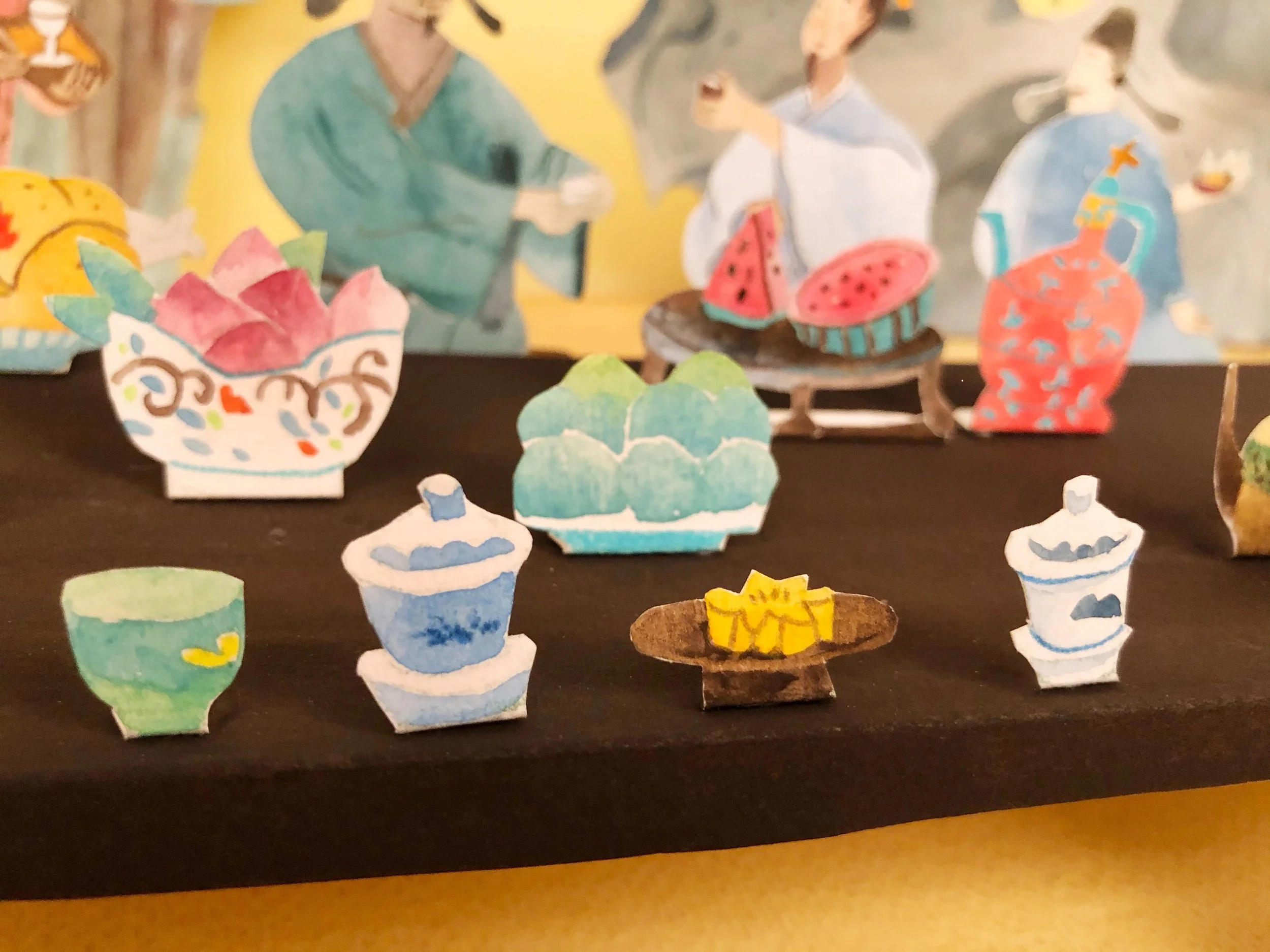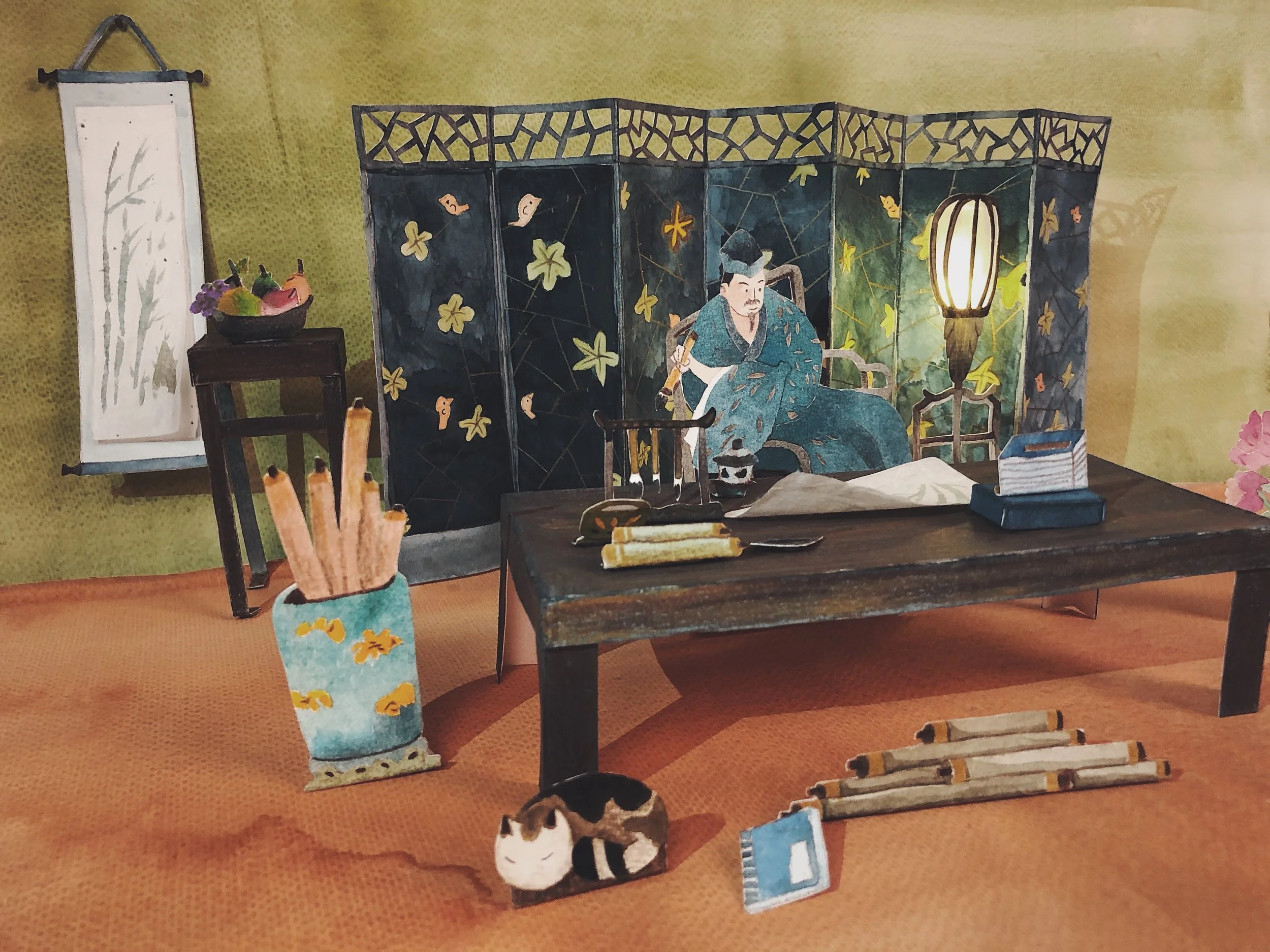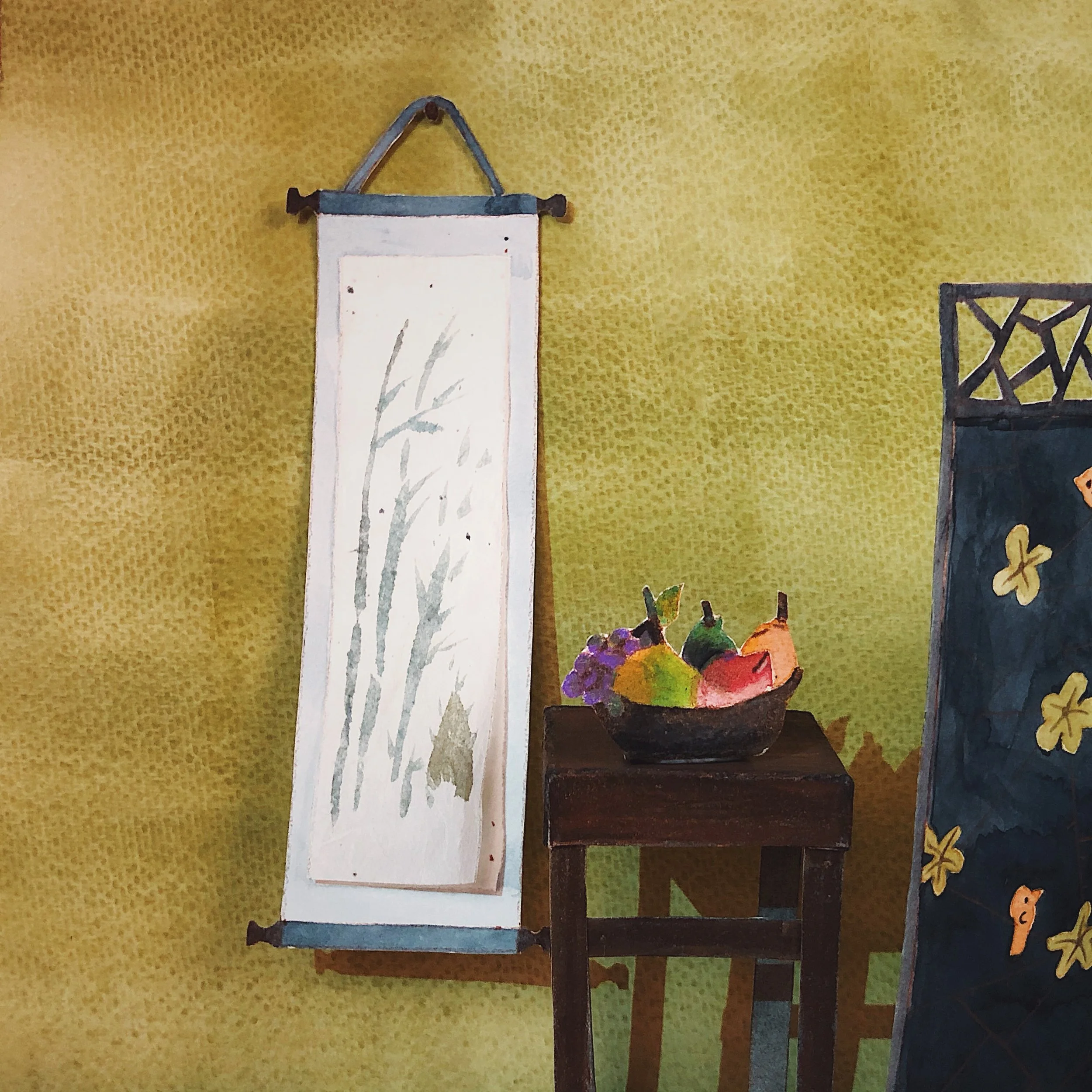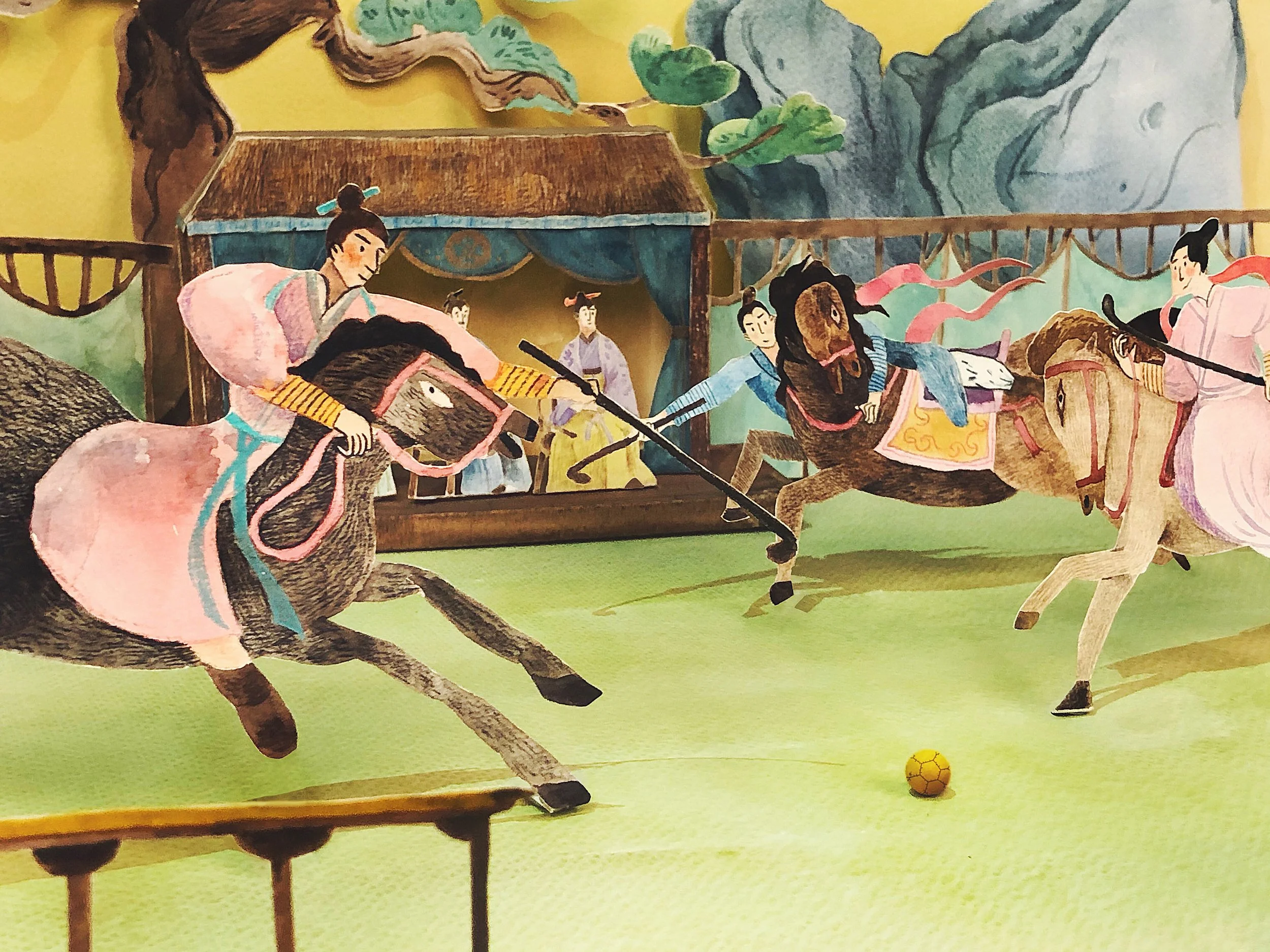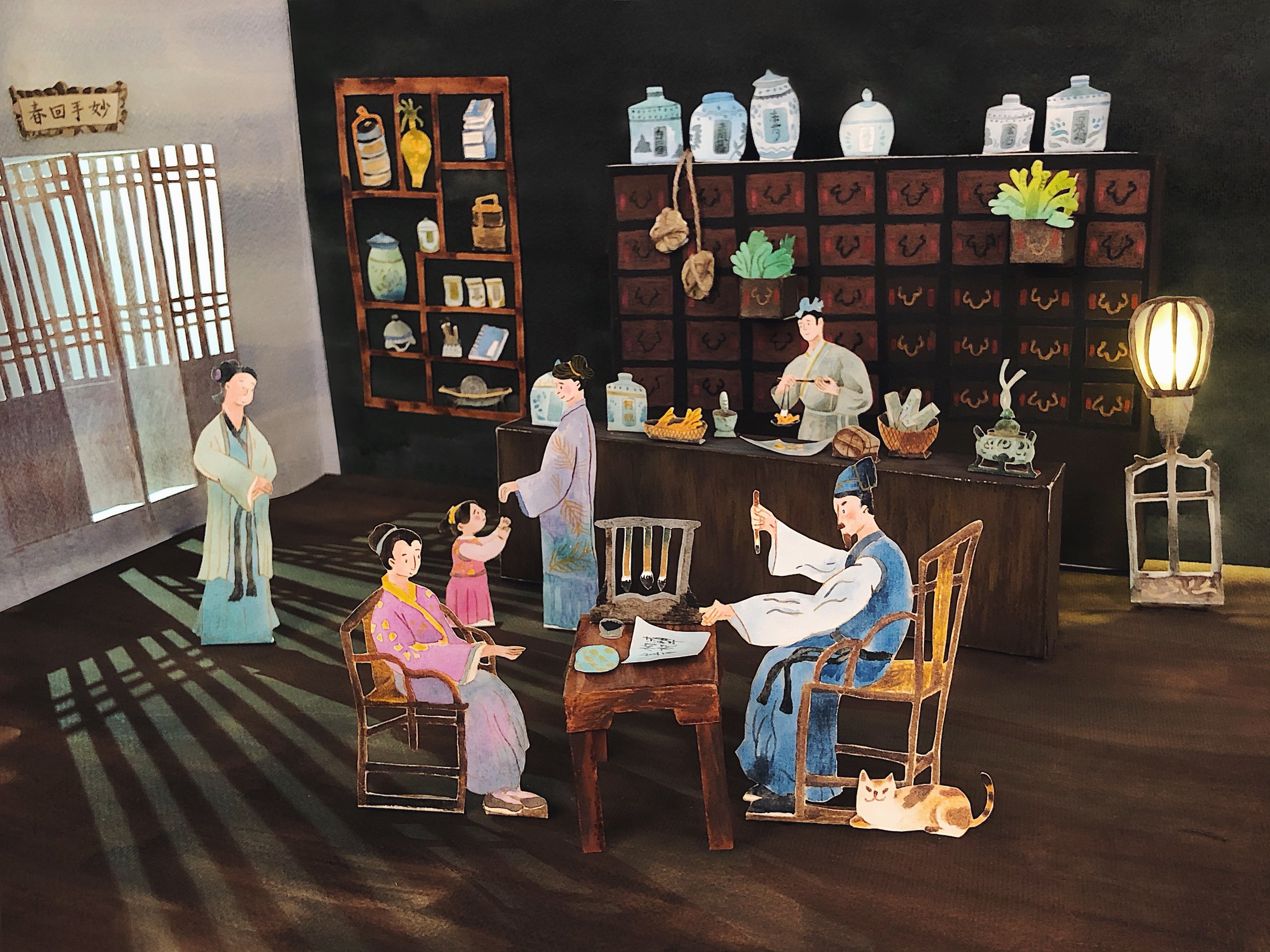
A Feast in
Song Dynasty
The flourishing economy of the ancient Song Dynasty in China resulted in tremendous urban development. Living standards, citizen quality, and culture experienced significant improvement. When asked the question, "Which dynasty would you most like to go back to?" people often choose the Song Dynasty. This collection of three-dimensional paper-cut artworks portrays various aspects of life during the Song Dynasty, providing a fresh sensory experience distinct from traditional ancient paintings.
Practitioners of traditional Chinese medicine
Since the Qin and Han Dynasties, there were only a few specialized pharmacies. However, during the Song Dynasty, with the advancement of urban commerce, shops dedicated to selling medicinal materials began to sprout up. These pharmacies were often family-run, passed down through generations, which contributed to the wealth of these families.
Taking the imperial examinations despite the long journey
The imperial examination system stood as the fairest and most prevalent means of talent selection in feudal China. Numerous candidates from distant regions were willing to travel to the capital city to participate in the imperial examinations. Accompanied by a boy serving their study needs, they embarked on a journey fraught with hardships, carrying their books and clothing. Should they fail to secure lodging in an inn before nightfall, they might be compelled to sleep in the wilderness. Throughout history, both ancient and modern authors have penned numerous tales of love between these individuals and ghosts.
Feasts of scholar-officials in feudal China
In feudal China, scholar-officials were literati holding official positions or scholars esteemed for their noble character and high prestige. Many of them had ample time and energy to explore the art of living, without the concerns of basic needs. They favored a vegetarian diet with subtle flavors, and they placed importance on the dining ambiance and tableware, promoting the aesthetics of life. The aesthetics of the Song Dynasty exerted a profound influence on generations to come.
The Study Rooms of Literati
Study rooms permeated the lives of Chinese literati. In their youth, they diligently toiled within these spaces, chasing after fame. As they matured, they sought solace from political strife within this small realm, where they read, recited poetry, and painted. These study rooms evolved into their spiritual sanctuaries.
Spending time on a boat
During the Song Dynasty, literati often opted for boats to travel to their designated posts. Throughout the extended journeys, these small boats served as their temporary homes. Immersed in their surroundings, they dedicated themselves to reading books, composing poems, practicing calligraphy, and painting on the boats, undeterred by any disruptions.
Polo
Ordinary people favored polo during the Song Dynasty. This was a departure from the Tang Dynasty when it was an activity confined to high-society circles. In Kaifeng, the capital of the Northern Song Dynasty, unique venues were established for people to engage in polo. Women's polo matches were even organized during festivals. Polo gained further popularity in the Southern Song Dynasty, with Emperor Huizong forming and establishing a women's polo team, comprising women with exceptional polo-playing skills.

